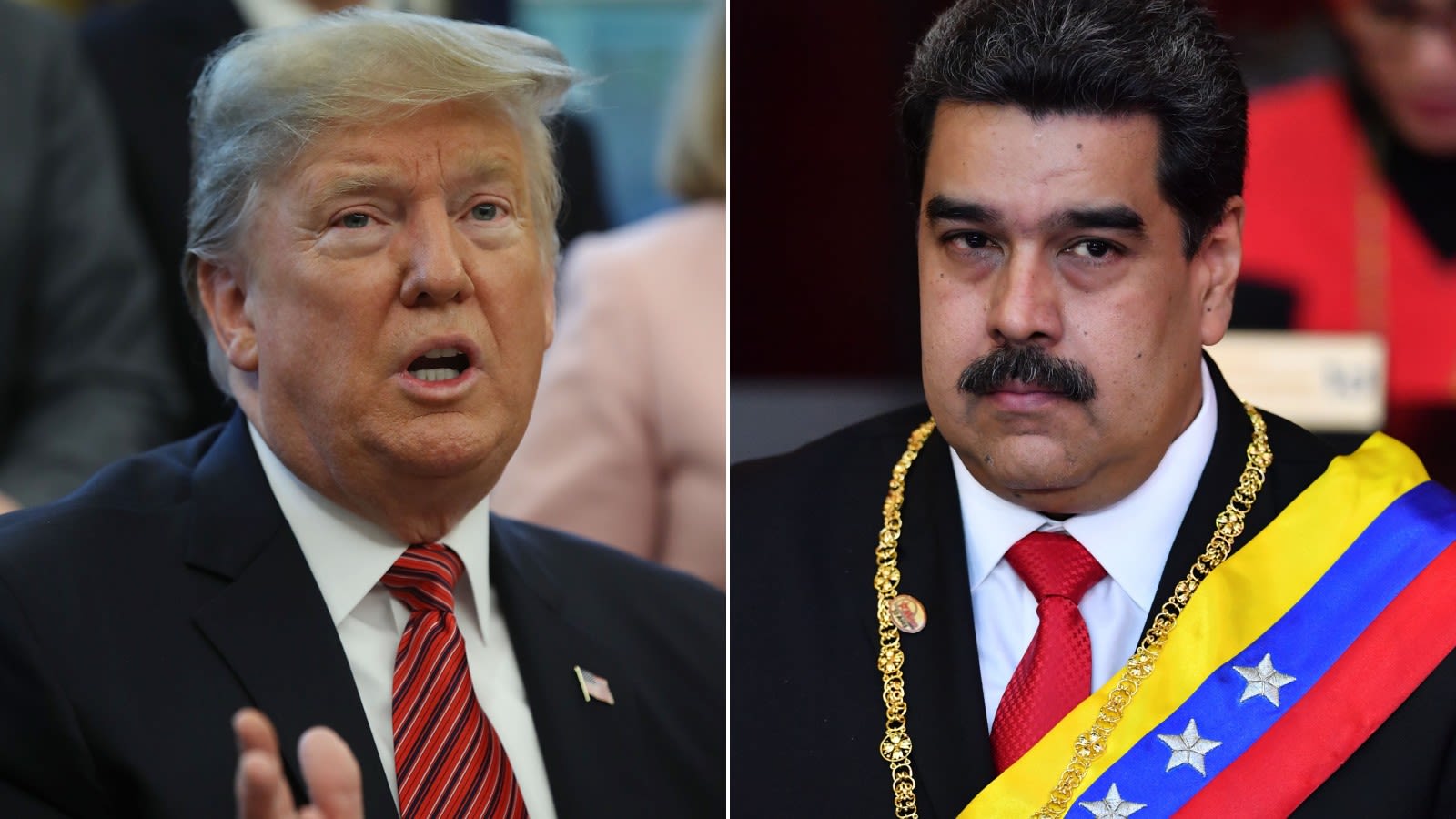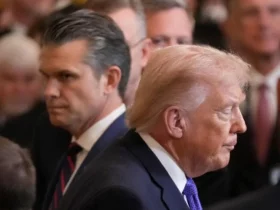Global context and probability of a US invasion of Venezuela.
Global context and probability of a US invasion of Venezuela.
I would like to offer some guidelines that will contribute to understanding Trump’s war against Venezuela and its insertion into regional and global dynamics. I believe this situation must be viewed from two dimensions: the international and the domestic for the United States.
Firstly, I think it’s necessary to say that in today’s world, no event is isolated from another. To that extent, analyzing phenomena that occur in isolation does not allow for a holistic view of the matter. The global conflict manifesting itself at different latitudes and longitudes of the planet and on all continents is an expression of a general crisis of Western hegemony, particularly that of the United States, and ultimately a crisis of capitalism as a social and economic model that has failed to resolve humanity’s major problems. This crisis differs from previous ones in that it is not cyclical in nature but rather manifests structural elements and, in its dialectical development, foreshadows a change of era and system.
In its development, it is creating the conditions for the emergence of a new world, still with blurred contours, but which represents an undeniable advance compared to the past. Thus, three fundamental characteristics emerge that reflect the strategic transformation of hegemony:
- The North Atlantic is ceasing to be the axis of political decisions on the planet. That role is being assumed by Eurasia. In this territory, the presence of the United States and Europe is irrelevant compared to the decisive role played by China and Russia.
- Unlike the past, which displayed a predominance of seas and oceans, today the focus is the land masses. This implies the need for a structural transformation of military doctrine and, therefore, of the organization and missions of the armed forces, which must shift from naval to land-based preponderance. Aircraft carriers are no longer the most important offensive weapon. That role is now played by hypersonic missiles, possessed only by Russia, China, Iran, and the Democratic People’s Republic of Korea.
- Today, hegemony is not only being built through military might; it is also decisively influenced by economic and financial potential, and above all, scientific and technological potential, where the United States is losing the battle.
The United States and the West are facing conflicts in Ukraine, Palestine, Africa, West Asia (in various locations throughout their geography), Yemen, Iran, Europe, and… the Caribbean. As they are losing the war in its strategic dimension—economic, commercial, scientific, and technological—and considering that the dollar is being used less and less, their only option to respond to this highly conflictive situation is through threats, blackmail, and violence, whether using military instruments or, equally, communications, cultural, and media instruments. These factors are present throughout the world, and of course, in the imperialist aggression against Venezuela from the Caribbean Sea.
On the other hand, the specific internal factors of the United States must be considered, which are impacting international dynamics like never before. This may be the first time in history that the United States government cannot be characterized as a clearly Republican or Democratic administration.
Today, the United States government is bipartisan and multisectoral. It can simply be characterized as “the Trump administration,” comprised of Republicans, but also Democrats (Tulsi Gabbard, Director of National Intelligence, and Robert F. Kennedy Jr., Secretary of Health and Human Services, are…or at least they were).
Also, part of the administration are the neoconservatives of the American neo-fascist far right, who have formed an alliance with the Cuban-American lobby to try to keep the United States in an ideological Cold War, just like in the last century, with the only difference being that before, the enemy was the Soviet Union, and now it is the Chinese Communist Party.
Other key components of the Trump regime are the political and ideological group closest to Trump known as MAGA (Make American Great Again), in addition to his closest family and friends, as well as billionaires, the most notable (but not the only) of whom is Elon Musk.
Trump also has to make these interest groups in his administration coexist with the “Deep State” that has its own opinions: (Armed Forces, intelligence community, financial system [Wall Street], media, Military Industrial Complex, energy transnationals, the big pharmaceutical industry and drug trafficking managed and organized systemically by the DEA), without any of which a President of the United States can survive because all of them make up the support of his political system.
That is to say, today we cannot speak of the United States as if it were a monolithic and cohesive country, nor can we speak of the “American government” as if there were only one. There are many governments within a single administration. Trump unites them; they need him to maintain positions of power, and Trump, in turn, requires them and uses them to maintain his hold on power. It’s a symbiotic relationship.
In the case of Venezuela and its relations with the United States, this situation is particularly noticeable. At the same time, President Nicolás Maduro’s government must engage with the MAGA party (Richard Grenell), with whom it maintains a certain relationship of respect. This has allowed the United States, under Trump’s instructions, to promptly resolve the three issues it had with Venezuela: the reestablishment of oil shipments, the reception of deported Venezuelans, and the return to their country of Americans imprisoned in Venezuela for terrorist and criminal activities. Negotiation and dialogue have allowed these differences to be resolved in each case.
But in parallel, the same administration, under the rule of neoconservatives and neo-fascist Cuban-American leaders, with the approval of Trump himself, who ordered Grenell to negotiate and engage in dialogue, has deployed a fleet to threaten Venezuela with military action under false pretexts that have not been proven or demonstrated.
This diffuse management by Trump is a response to the multi-sectoral nature and diverse interests of his administration and, of course, to the egotistical, arrogant, overbearing, narcissistic, and bombastic personality of someone who grew up as a rich kid and grew accustomed to living that way, that is, obtaining everything he wants through money or through forceful acquisition when something was beyond his reach. The people of the world must understand this dynamic and learn to act within the conditions it creates.
In the case of the threat to Venezuela, a military invasion of the country is unlikely for several reasons:
- There is no consensus within the US administration regarding the validity of such an action.
- There is no public support in the United States for an attack of this magnitude.
- There is no absolute conviction within the United States Armed Forces that they can achieve an immediate victory so that their actions do not lead to a long war of resistance, which they do not desire.
- There is no regional consensus supporting an invasion of Venezuela. Even governments loyal to and subservient to Washington reject it. The Lima Group does not exist.
- Duque is not in power in Colombia, nor is Bolsonaro in Brazil to provide the ground support necessary for a potential operation from the sea.
- And most importantly, there is no internal front to receive the invaders and provide support and assistance. The terrorist opposition today constitutes a tiny minority that only exists thanks to the financial and logistical support of neoconservative political sectors in the United States and Europe. This disjointed opposition has no vision and is under the control of Venezuelan intelligence agencies, which will act against it the moment Washington takes a step toward invading the country.
Despite all of the above, the United States cannot be ruled out carrying some other type of terrorist action against Venezuela. In this context, its biggest problem is how to emerge from the conflict it has entered with a “victory” that allows it to demonstrate to the public that the action taken made the United States safer. That’s not so difficult in the face of a public opinion dumbed down by the media.
Therefore, Venezuela must remain vigilant. Venezuela’s weapons are a united and mobilized people, the solid leadership of President Maduro, a deployed armed force in full combat readiness, and above all, a people with an undeniable will to fight and win.
*Revised and expanded text of the paper presented at the 29th Seminar “The Parties and a New Society” organized by the Labor Party (PT) of Mexico, held in Mexico City on September 27, 2025.

















Leave a Reply